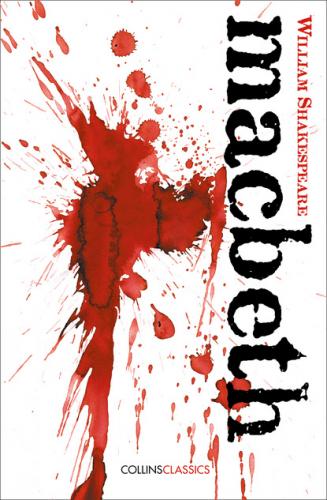111. was combin’d allied himself.
112. line the rebel assist Macdonwald.
113. hidden help and vantage secret aid.
114. labour’d…wreck worked to ruin his country.
115. treasons capital acts of treason worthy of the death penalty.
117. The greatest is behind the fulfilment of the Third Witch’s prophecy, the Kingship, will follow after this stage, in the future (hence the word ‘behind’).
118. Macbeth again refers to the prophecy about Banquo’s children becoming kings.
120. trusted home believed in fully.
122–6. Banquo reveals his own deep distrust of the witches and their words, saying ‘The Devil’s helpers often impress us and win our confidence by telling us some small truths about our lives so that, once we are in their power, they can deceive us in really important matters (and thus destroy us).’
128–9. the swelling act…theme Macbeth sees himself as king at
the climax of a great drama.
130. soliciting prompting, egging on.
131–3. What Banquo suspected and dismissed (a small truth leading to betrayal In deepest consequence) Macbeth also suspects but will not dismiss.
134–7. If good…nature? Already Macbeth is contradicting Ross’s remark in lines 97–8. Here is an image of death of which he is clearly afraid. Is it one of his own creation or not? He is certainly considering murder (see line 140).
135. unfix my hair make my hair stand on end.
136. seated firmly fixed.
137. Against the use of nature in an unnatural way.
137–8. Present fears…imaginings A real cause of fear (e.g. a fierce enemy in the recent battle) is less frightening than something horrible which you imagine.
139–42. Macbeth is obsessed by the idea of murder and is incapable of normal action. Nothing seems real to him except what he is creating in his mind.
143. rapt lost in his own thoughts.
144–5. At first, in order to escape his horrible imaginings, Macbeth adopts the attitude of saying to himself: ‘There is no need for me to take any action; if it is my fate to be king, it will just happen that way.’
145–6. New honours…use The honours which have just come to him (Macbeth) are like new clothes which take time to shape themselves comfortably to the body. Note the reference to clothing imagery again.
147–8. Come what…roughest day Macbeth continues to shrug off his troubled thoughts: ‘I suppose I shall live through it. Even the most troubled day has to come to an end.’ The words give him something to hang on to.
149. Banquo indicates politely that they are waiting until Macbeth is ready to go.
150–1. ‘Do forgive me. My over–tired brain was disturbed by things that I can’t even remember now’. This may not seem a big lie, but it is a lie nevertheless.
151. your pains your services to me.
152–3. where every day…read them i.e. in his mind.
155. The interim having weigh’d it the interval having given us a chance to consider it.
156. Our free hearts Can either of their hearts be described as free?
Конец ознакомительного фрагмента.
Текст предоставлен ООО «ЛитРес».
Прочитайте эту книгу целиком, купив полную легальную версию на ЛитРес.
Безопасно оплатить книгу можно банковской картой Visa, MasterCard, Maestro, со счета мобильного телефона, с платежного терминала, в салоне МТС или Связной, через PayPal, WebMoney, Яндекс.Деньги, QIWI Кошелек, бонусными картами или другим удобным Вам способом.
